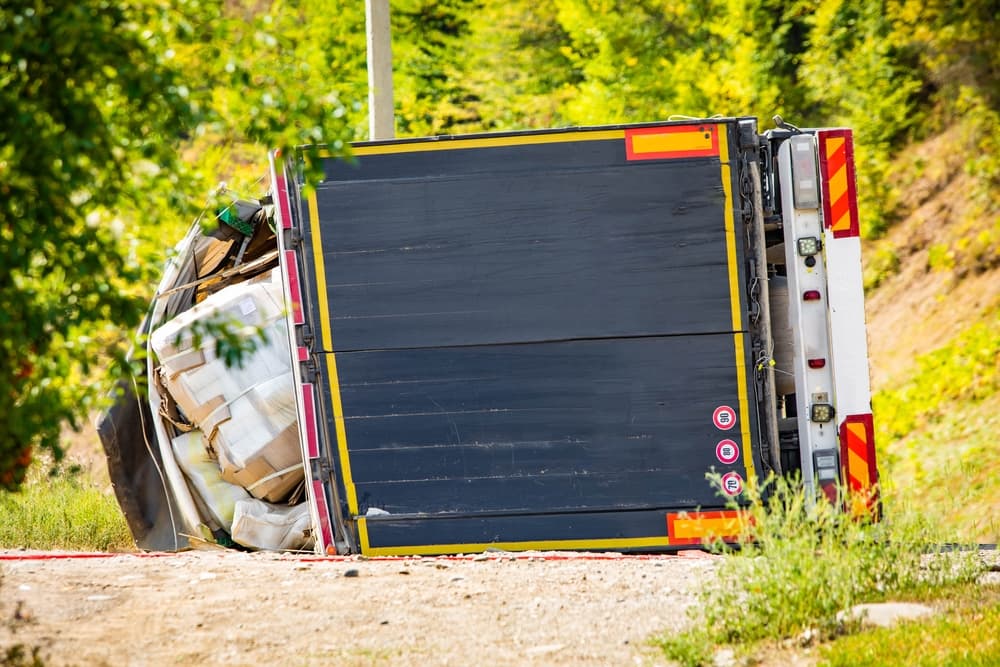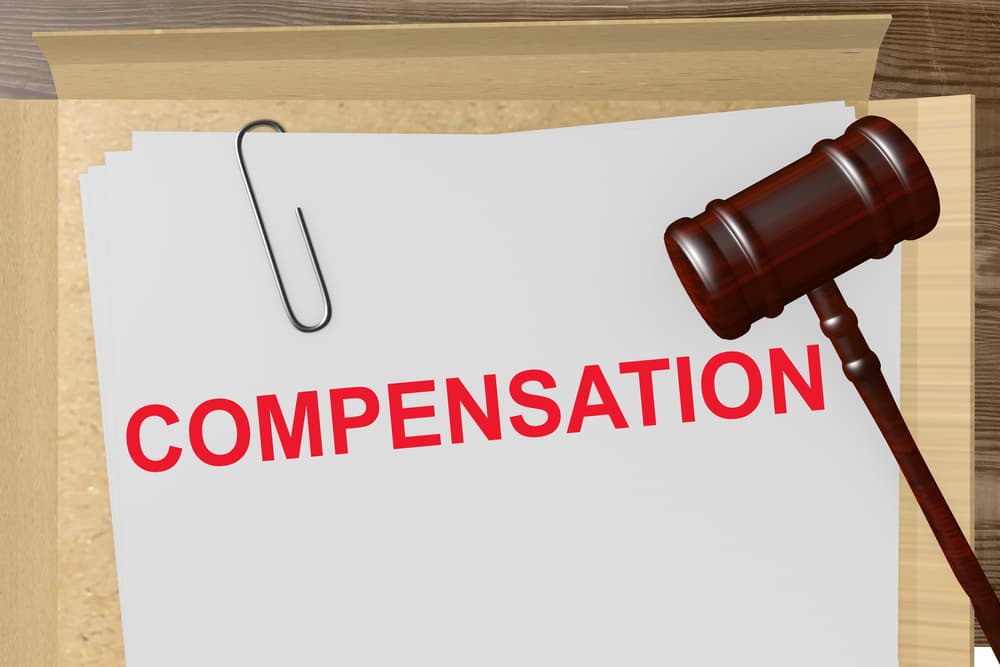Trucking companies owe roadway drivers a high legal duty of care. Specifically, they must operate their vehicles in a safe manner that prioritizes public safety. This duty includes hiring qualified drivers, ensuring proper training, adhering to federal regulations on driver hours and vehicle maintenance, and promptly addressing any safety concerns.
Trucking companies must also supervise their drivers to prevent reckless behavior and maintain their fleet to avoid mechanical failures that cause accidents. Failing to meet these standards constitutes negligence, which can make the company liable for any accidents and injuries that result.
You have legal options if you suffered injuries in a collision that a negligent trucking company caused. A skilled truck accident lawyer can review your circumstances with you, file a claim with the insurance company on your behalf, and pursue the settlement or litigation compensation you deserve.
How Negligence Causes Trucking Accidents
Trucking accidents can result from trucking company negligence, leading to severe consequences for drivers, passengers, and pedestrians alike.
Trucking companies can also face liability for the negligent acts of drivers.
- One common cause of trucking accidents is driver fatigue. Truck drivers often face demanding schedules, sometimes driving long hours without adequate rest breaks. Federal regulations limit the number of hours a driver can operate consecutively, yet some companies may pressure drivers to exceed these limits to meet deadlines. Fatigued drivers are more prone to making errors, including falling asleep at the wheel or reacting slowly to changing road conditions.
- Poor vehicle maintenance is another significant factor. Trucking companies are responsible for ensuring that their vehicles are properly maintained and safe for operation. Neglecting routine maintenance such as brake checks, tire inspections, and engine servicing can lead to mechanical failures on the road. Brake failures, in particular, can result in catastrophic accidents, as large trucks require longer stopping distances.
- Overloaded or improperly loaded cargo can also contribute to accidents. Trucks that exceed weight limits or have unbalanced loads are more difficult to maneuver and control. Improperly secured cargo can shift during transit, causing the truck to become unstable or spill its contents onto the road, posing hazards to other drivers.
- Inadequate driver training and supervision are additional factors. Trucking companies must ensure that drivers receive comprehensive training on safe driving practices, cargo handling, and emergency procedures. Insufficient training can lead to errors in judgment or improper responses to hazardous situations on the road.
- Distracted driving is increasingly recognized as a cause of truck accidents. Drivers may use cell phones, GPS devices, or other electronic devices while driving, diverting their attention away from the road. Even momentary distractions can have serious consequences due to the size and weight of trucks.

Several types of truck accidents commonly occur due to these forms of negligence, including:
- Rear-end collisions, often resulting from driver fatigue, distraction, or inadequate braking systems
- Jackknife accidents, which occur when a truck’s cab and trailer skid out of alignment, often due to sudden braking or turning at high speeds
- Rollover accidents, typically resulting from speeding, sharp turns, or unevenly distributed cargo
- Underride accidents, where a smaller vehicle slides underneath a truck, often due to inadequate marking or lighting on the truck’s rear
- Lost load accidents, resulting from improperly secured cargo, leading to debris on the road and potential collisions
- Intersection accidents, often due to driver error – such as running red lights or failing to yield
Trucking companies have a responsibility to lessen these risks through rigorous safety protocols, regular maintenance, and prioritizing driver well-being.
Common Injuries in Truck Crashes
Commercial truck accidents can cause a range of serious injuries due to the sheer size and weight of the vehicles involved.
When negligence on the part of trucking companies contributes to these accidents, the consequences can be particularly devastating for victims.
- One of the most common injuries in commercial truck accidents is whiplash. This injury occurs when the force of a collision causes the victim’s head and neck to jerk forcefully, straining the muscles and ligaments. Whiplash can lead to prolonged pain and stiffness, severely affecting the victim’s daily activities.
- Traumatic brain injuries (TBIs) are also prevalent in truck accidents, often resulting from the victim’s head striking objects inside their vehicle – or from severe impacts. TBIs can range from concussions to more severe injuries that cause long-term cognitive impairment or disability.
- Spinal cord injuries are another serious outcome. These injuries may lead to partial or complete paralysis, depending on the location and severity of the damage. Spinal cord injuries can significantly alter a person’s quality of life, requiring extensive medical treatment and rehabilitation.
- Broken bones can also result from truck accidents – especially where vehicles are crushed, or occupants are ejected. Fractures may occur in the victim’s arms, legs, ribs, or pelvis, requiring surgery and lengthy recovery periods.
- Internal injuries are common due to the force of impact in truck accidents. These injuries may include organ damage, internal bleeding, or injuries to the chest or abdomen. Internal injuries are often life-threatening and require immediate medical intervention.
- Burn injuries can result from fires or explosions in trucking accidents – particularly when hazardous materials are involved. Burns can cause excruciating pain, require multiple surgeries, and leave lasting physical and psychological scars.
- Soft tissue injuries such as muscle strains, ligament tears, and contusions are also prevalent. These injuries may not be immediately apparent but can cause chronic pain and limit mobility over time.
- Emotional trauma is another significant consequence of truck accidents. Survivors may experience post-traumatic stress disorder (PTSD), anxiety, depression, or other psychological disorders as a result of the traumatic event.
Victims of commercial truck accidents may face long-term medical treatment, rehabilitation, and financial hardship. Holding trucking companies accountable for negligence can help victims obtain compensation to cover medical expenses, lost income, and other damages incurred due to the accident.
Proving Negligence on the Part of a Trucking Company

Proving that a trucking company was negligent for causing a truck accident involves gathering evidence to demonstrate that the company failed to uphold its duty to ensure safe operations.
Here are some key steps to establishing negligence in a truck accident case with the help of an experienced truck accident lawyer:
- Driver Logs and Records – Obtain and review the truck driver’s logs, which track hours of service. If the logs show federal driving hour or rest break violations, it can indicate driver fatigue – a common cause of trucking accidents. Discrepancies between the logs and actual driving schedules can highlight negligence.
- Maintenance Records – Request maintenance records for the truck involved in the accident. Poor maintenance, such as brake failures or tire blowouts, can indicate negligence on the trucking company’s part.
- Driver Qualifications and Training – Investigate the driver’s qualifications and training records. A lack of proper training on safety protocols, cargo handling, or emergency procedures suggests negligence in preparing drivers for safe vehicle operation.
- Company Policies and Procedures – Examine the trucking company’s policies and procedures and ensure that they comply with federal regulations and industry standards. Policies that encourage unrealistic delivery schedules or pressure drivers to exceed legal driving limits can contribute to accidents and indicate trucking company negligence.
- Witness Statements and Accident Reconstruction – Collect statements from witnesses who saw the accident or its aftermath. Witness testimony can provide crucial details about the circumstances leading to the accident. Accident reconstruction experts can analyze physical evidence, vehicle damage, and road conditions to determine the ultimate cause of the truck accident.
- Electronic Data – Retrieve data from the truck’s electronic control module (ECM) or black box. This data includes speed, braking patterns, and engine performance leading up to the accident. Discrepancies between the data and the driver’s statements or company records can reveal negligence.
- Compliance with Regulations – Violations of regulations regarding vehicle maintenance, driver hours, cargo securement, and safety inspections can establish trucking company negligence.
- Past Violations or Incidents – Research the trucking company’s history of safety violations, accidents, or regulatory penalties. A pattern of negligence or disregard for safety measures strengthens the case for proving current negligence.
Proving trucking company negligence requires compiling detailed documentation and evidence to support your claims. Work with an experienced truck accident lawyer who understands trucking regulations and accident investigation procedures. By meticulously gathering and presenting evidence of negligence, victims of truck accidents can seek the justice and compensation they need for their losses.
Litigating a Case Involving Trucking Company Negligence
Taking a case involving trucking company negligence to trial involves several critical steps to serve justice.
Here’s what typically happens in such cases:
- Pre-Trial Preparation – Before going to trial, a lawyer thoroughly prepares. This includes gathering evidence such as accident reports, witness statements, expert testimony, and documentation proving the trucking company’s negligence.
- Filing a Lawsuit – Litigation begins by filing a lawsuit against the trucking company responsible for the accident. The lawsuit outlines the allegations of negligence, the injuries that the victim sustained, and the damages sought.
- Discovery Phase – Both parties exchange relevant information and evidence through discovery. This includes documents, witness lists, and expert reports. Depositions may also be conducted, where witnesses and experts provide sworn testimony.
- Pre-Trial Motions – Attorneys may file pre-trial motions to address legal issues or disputes that arise before trial. These motions can influence the scope of evidence allowed during trial or even lead to a settlement negotiation.
- Jury Selection – In cases where a jury trial is sought, a jury selection process takes place. Attorneys from both sides question potential jurors to ensure that a fair and impartial jury is selected.
- Trial Proceedings—The trial begins with opening statements from each side, where attorneys outline their arguments and the evidence they intend to present. Witnesses, including accident reconstruction experts, medical professionals, and eyewitnesses, testify to support their claims. Exhibits, documents, and visual aids illustrate key points.
- Cross-Examination and Rebuttal – Attorneys cross-examine witnesses to challenge their testimony and credibility. They may also present rebuttal witnesses or evidence to counter the opposing party’s claims.
- Closing Arguments – Attorneys deliver closing arguments summarizing the evidence and persuading the jury to rule in favor of their client. They emphasize the trucking company’s negligence and the effects of the accident on the victim’s life.
- Jury Deliberation and Verdict – After closing arguments, the jury deliberates to reach a verdict. They consider the evidence presented and instructions from the judge regarding the law. The verdict determines whether the trucking company is liable for negligence and, if so, the amount of compensation awarded to the accident victim for damages, such as medical expenses, lost income, pain and suffering, and other losses.
Taking a trucking accident case to trial requires skilled legal representation, thorough preparation, and a clear presentation of evidence to demonstrate the trucking company’s negligence.
Recovering Compensation in a Truck Accident Case
The value of a truck accident case can vary widely based on factors such as the severity of injuries, the effects on the victim’s life, and the specific circumstances surrounding the accident.
Victims of such accidents can seek compensation to recover their losses, including:

- Past and future medical costs
- Lost income
- Loss of earning capacity
- Past and future pain and suffering
- Emotional anguish and mental distress
- Lost quality of life
- Loss of the ability to use a body part
- Permanent disability and impairment
- Loss of consortium
Also, in cases of egregious negligence or willful misconduct by the trucking company, punitive damages may be awarded to punish the company and deter similar misconduct.
The ultimate value of a trucking accident case depends on factors like the extent of the victim’s injuries, the effects on the victim’s well-being, the degree of negligence demonstrated, and jurisdictional considerations. An experienced truck accident lawyer can advocate on your behalf, negotiate with insurance companies and defense lawyers, and present a compelling case in court if necessary.
Contact a Knowledgeable Trucking Accident Lawyer Today
If you recently suffered injuries in an accident that a negligent trucking company caused, you should seek legal help immediately. A skilled trucking accident attorney can swiftly investigate your accident circumstances, determine your options, and set you on course to obtain the compensation and justice you deserve.
